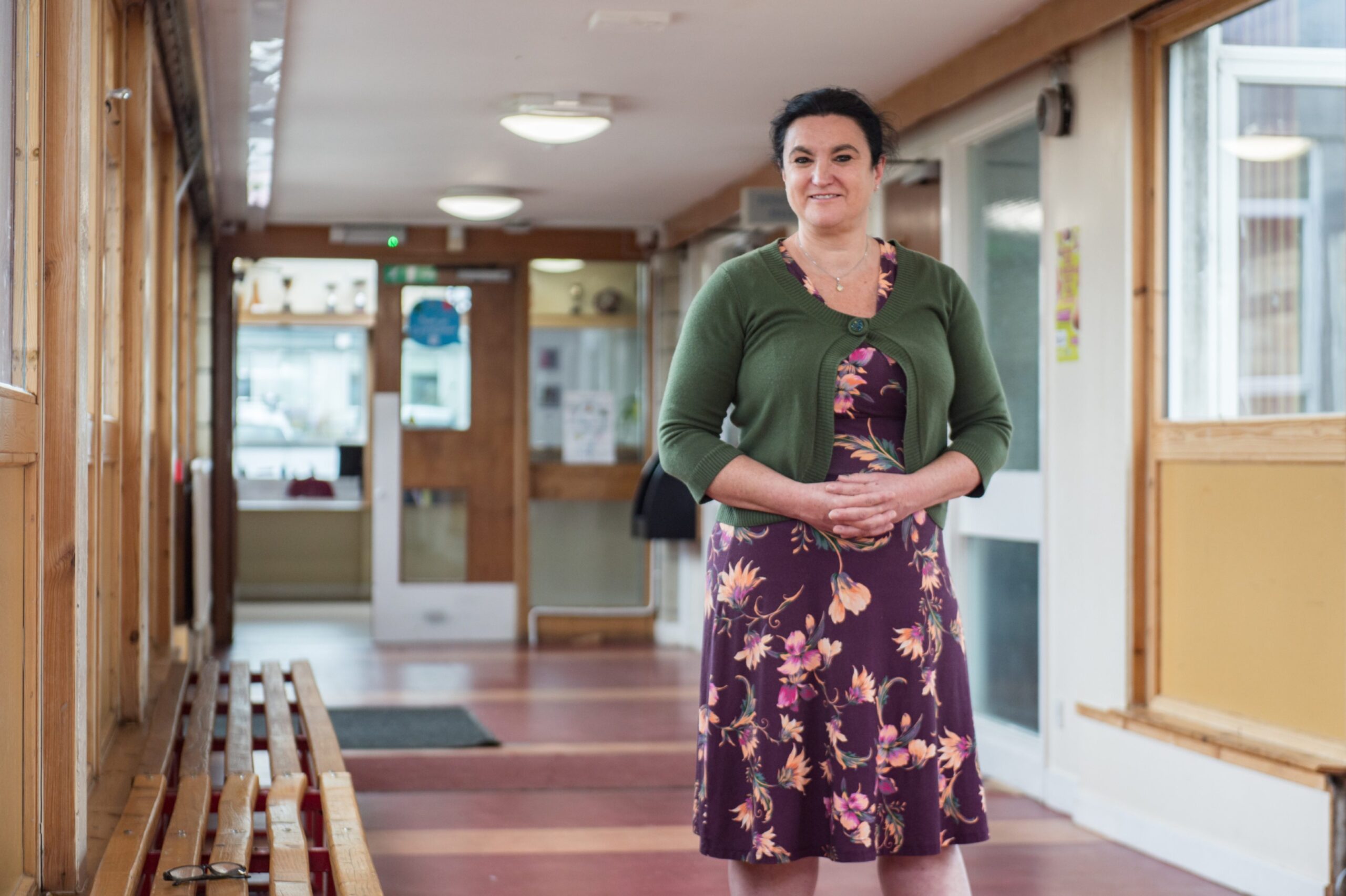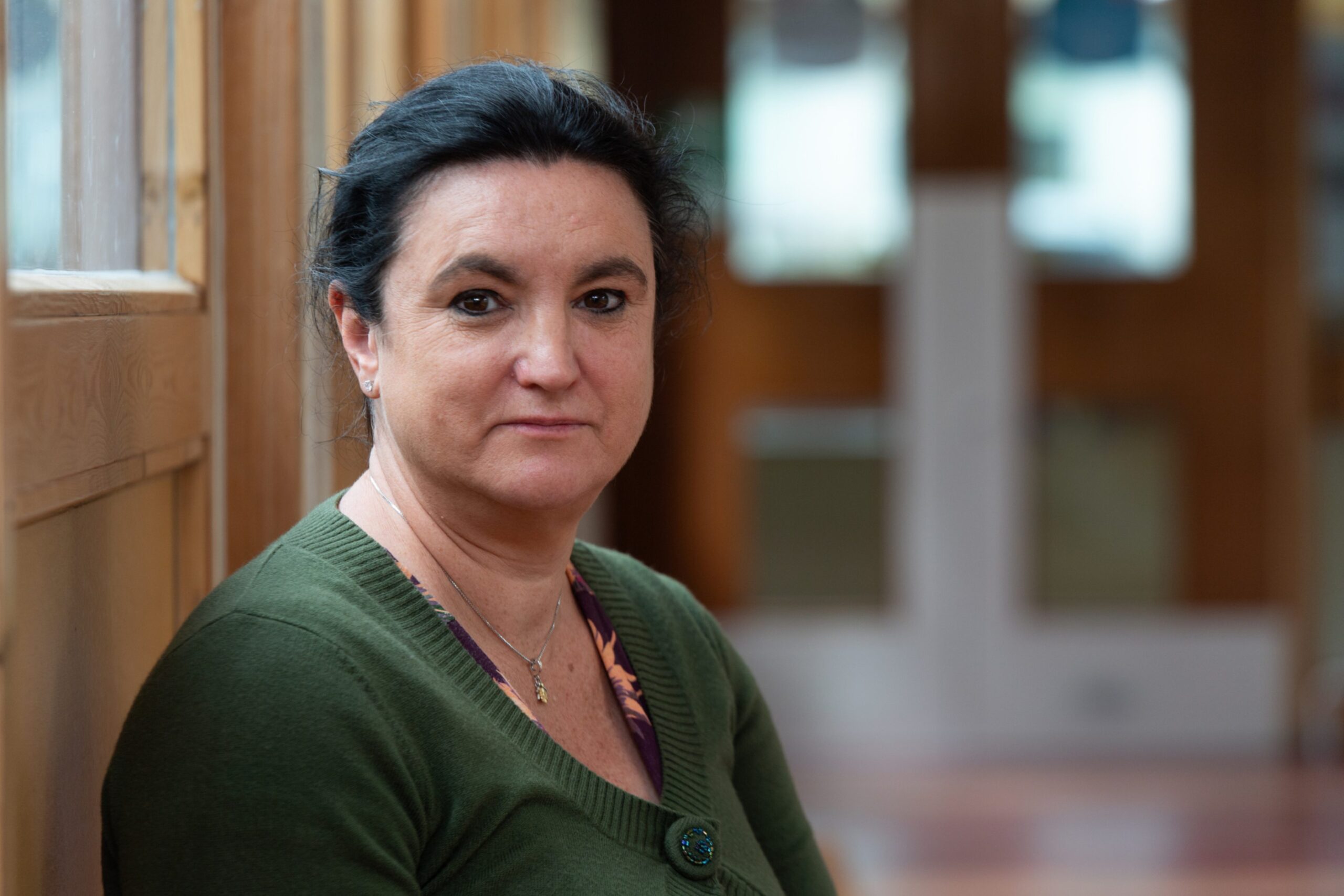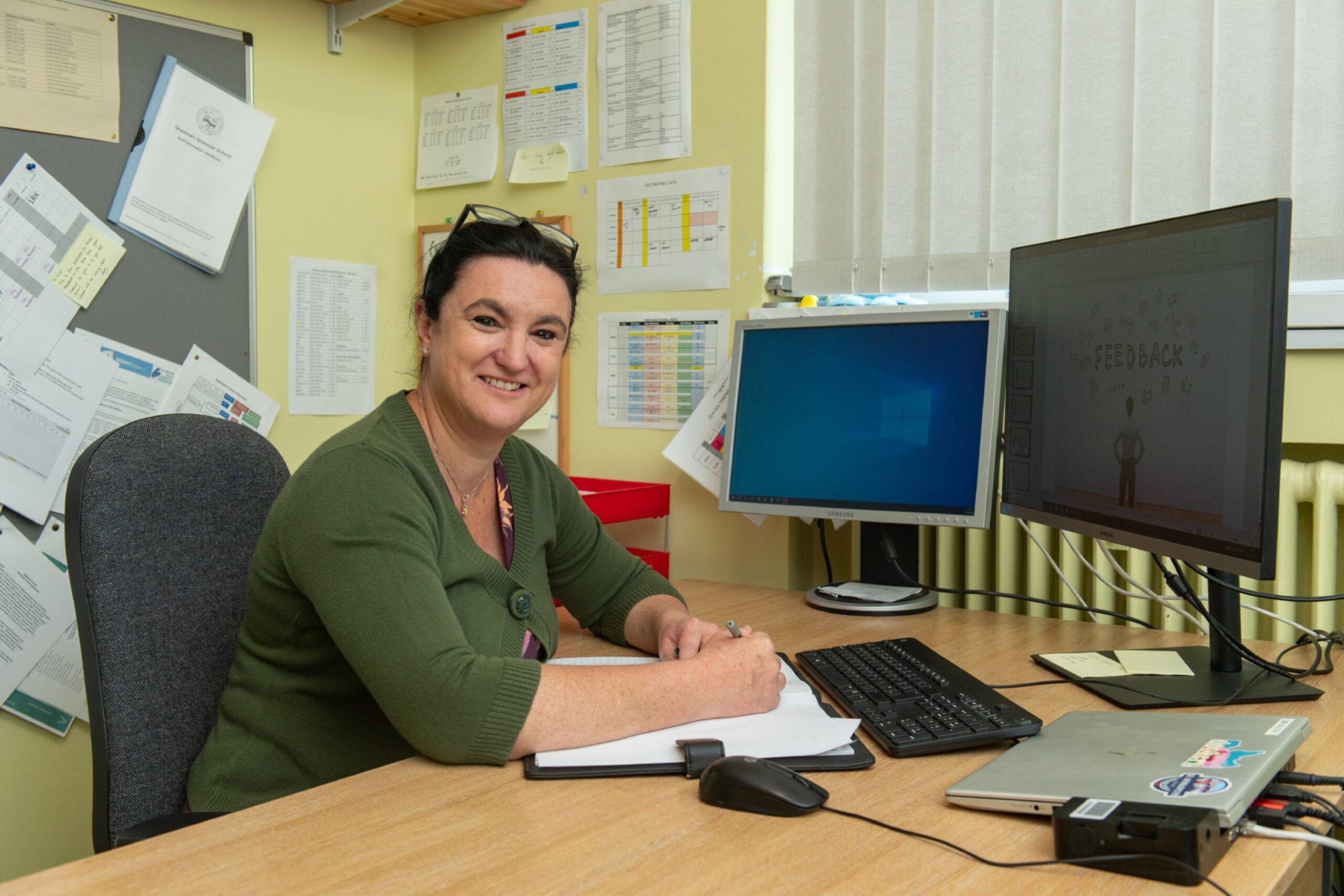The head teacher of a Highland secondary school who banned mobile phones said the move has transformed the school.
Grantown Grammar School in Grantown-on-Spey introduced a total ban on devices in May.
Head teacher Claire McGonigal cited recent research studies showing a correlation between smartphones and a negative impact on behaviour, learning and attainment.
The move also pre-empted new Scottish government guidance released earlier this month, which gives head teachers the authority to ban mobile phones from school.
Grantown Grammar School acted on concern from parents and staff
Mrs McGonigal said she acted after a “groundswell of opinion” from both parents and staff that mobile phones were becoming too much of a distraction in school.
“From a mental health point of view, even with phones switched to silent, the constant buzz of notifications from apps in addition to messages from friends was hugely distracting and increasingly stressful for pupils,” she said.
“You only have to consider how much you’re affected by a ping from your phone to realise the impact they have in a classroom.”
Parents have been “overwhelmingly supportive” of the “total phone ban”.
Phones at Grantown Grammar School must be switched off and completely out of sight in pupils’ school bags when they are on school grounds.
And staff have reported more engaged pupils in class, with fewer requests to leave class for various reasons, such as filling their water bottle.
“The reaction from pupils has been both interesting and heartening,” said Mrs McGonigal.
“We have had very few mobile phones confiscated, and a number of pupils have voluntarily fed back to staff that they are enjoying not having the pressure of having to monitor their phones during the day.”
More ‘good mornings’ in the corridor
Interestingly, Mrs McGonigal said pupils’ social skills had improved.
“The first observation was that the noise levels in the school had increased, not in a bad way but the general buzz of chatter and laughter was noticeably louder.
“Pupils are more engaged with their peers and there are more ‘good mornings’ as staff walk down the corridor.
“We have also noticed that pupils are taking part in more extra-curricular lunchtime clubs, are playing more informal sports at lunchtime, and also playing more board games and cards at break and lunchtime.”
As a result, Grantown Grammar School has invested in table tennis tables and dartboards, following requests from pupils. The school has also managed to acquire a couple of old pianos for pupils to tinker on in the playground.
Though she admits it’s early days, Mrs McGonigal said staff had seen a reduction in negative social media use and cyberbullying.
‘The negative impact of phones completely outweighs any positives’
And though mobile phones do have positive aspects, the head teacher has no regrets over her decision to ban them from school.
“It’s worth saying that there are some benefits for having phones in school, for example being able to take a photo of work on the board.
“But in Highland we are fortunate to have one-to-one devices in secondary schools, namely Chromebooks, which means that having phones in the classroom is unnecessary.
“The negative impact of phones completely outweighs any potential positives.
“Mobile phones in schools are a distraction in class and in social time, can make pupils feel isolated, increasing anxiety that they are missing out or not included, and can cause cyberbullying, particularly by excluding pupils from groups or sharing negative comments or images.
“There’s also the extremely negative aspect of social media algorithms, which push extreme material at young people, exposing them to dangerous ideas which they aren’t mature enough to cope with.
“Studies have shown that banning mobile phones in school has a positive impact on classroom engagement, social and mental wellbeing and also the general ethos of a school, particularly for pupils who are less academic.
“This is certainly what we have found so far at Grantown Grammar School.”
Taking the pressure off, and giving kids the space to grow up
Part of the thinking behind the school’s phone ban is allowing pupils to grow up and mature without the added pressure that smartphones inevitably bring.
“I’m pleased that I wasn’t at school during the smartphone era!” said Mrs McGonigal.
“Young people today have a huge amount of pressure as their comments, actions and mistakes are all recorded and can be shared.
“Technology is moving at a very fast pace and, as digital immigrants, most parents and staff are very often playing catch up. As soon as we get to grips with one social media app, another one comes along.
“This means that boundaries and guidance needs to change at a fast pace too, which is very hard.
“What we are trying to do at Grantown Grammar School is give pupils the chance to make mistakes and learn from them without the pressure that someone might take a photo, to switch off from notifications and concentrate on being in the moment, be it a maths lesson or lunchtime banter with friends.”
Teachers at Grantown Grammar School have also stopped using their phones
Staff are also keen to be role models, and have stopped using their phones in school as much as possible.
“We’re enjoying having more chat with colleagues, which has led to some very creative ideas including building a barista café in the school.
“I’m looking forward to see where we go next.”
Some P&J readers felt the Scottish Government’s new guidance on mobile phones in schools simply passed the buck onto head teachers.
However John Finlayson, chairman of Highland Council’s education committee, feels it is the “right decision.”
He said: “I think the approach taken to empower head teachers to make decisions that take account of their individual circumstances is the right decision.
“Given the diversity of settings that prevail across schools in areas like Highland, it’s important that the senior leaders in our schools have the autonomy to make decisions that reflect the issues and challenges within their own school and school community.”
A Scottish Parliament petition to prohibit mobile phone use in Scottish schools currently has more than 5,000 signatures.






Conversation